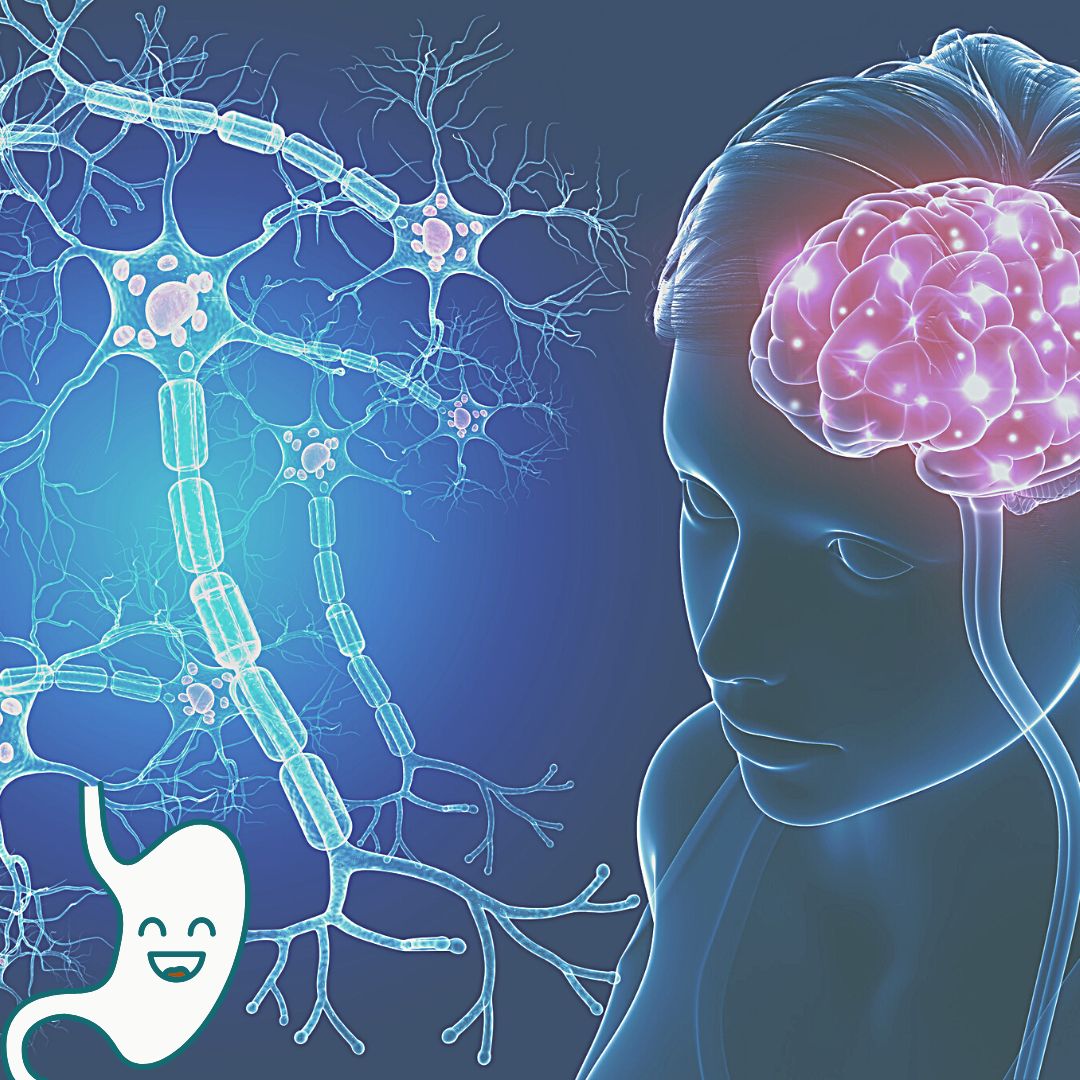Our nervous system is made up of nerves and chemicals that act as messengers for the body. It’s like the software of a computer communicating with the hardware of our body (the organs, muscles and bones) and telling them what to do.
The Autonomic Nervous System
Part of our nervous system works in the background – automatically without our conscious control. This is important because it controls our breathing, heart pumping, ovulation, digestion, sweating, shivering etc. This is known as the autonomic nervous system. The autonomic nervous system is then split into two parts – the sympathetic and the parasympathetic nervous systems.
The sympathetic nervous system is responsible for ‘action’, the ‘fight or flight’ response. It increases your heart rate to get oxygen to your brain and muscles, stimulates glucose production so you have the energy to run or fight, it stimulates adrenaline to give you ‘oomph’, it inhibits digestion and reproduction as these are not priorities and contracts your rectum so there will be no pooing…
The parasympathetic nervous system does the opposite, it stimulates salivation ready for eating, it stimulates the process of digestion and absorption and defecation (pooping), it stimulates ovulation and libido and keeps your eyes lubricated. It is known as the’ rest and digest’ or’ feed and breed’ nervous system (1-3).
Imagine the autonomic nervous system being a car and the sympathetic nervous system being the accelerator pedal and the parasympathetic nervous system, the brake.
You need both the brake and accelerator in order for the car to function.
Too much brake and you don’t move forward, too much accelerator and eventually the car will burn out or hit a wall.
Stress
When we are chronically stressed, then our foot is on the accelerator. We won’t be releasing saliva or enzymes need to break our food down into tiny bits that then get absorbed, the movement that pushes food through out gut (known as peristalsis) is inhibited so we are much more likely to experience reflux, indigestion, bloating and constipation. If we aren’t absorbing our nutrients then that will have a knock on effect on our general health, affecting all of our bodily systems including our immune system, mental health and hormones.
Extrinsic nerves, Intrinsic nerves and the Vagal Nerve
Specific nerves (known as extrinsic nerves) connect our digestive organs (stomach, intestines, liver and gallbladder and pancreas) to the brain and spinal cord. These nerves cause the release of chemicals which then stimulate the muscles of the gut to either squeeze and contract or relax depending on whether food needs to be digested or not. Other nerves inside the gut itself (known as intrinsic nerves) stimulate the speed of the movement of food (known as motility) and the production of digestive enzymes that help absorb nutrients by making them tiny.
One of the most important nerves that link our gut to our brain is called the vagus nerve. It connects the brain to all our major organs and is active when the parasympathetic nervous system (the brake) is activated. It is called the “wanderer” because it travels all the way from the brain down to the kidneys and to the uterus.
The vagus nerve is responsible for stimulating the production of stomach acid, other digestive enzymes and bile, churning food in our stomach, stimulating muscles in our gut to push food through and down (peristalsis and Migrating Motor Complex). It is also an important communication bridge between our brain and out microbiota
Miscommunication and IBS
As food moves through our gut, it causes stretching and this stimulates the conversation between our gut and brain through nerves. Sometimes the communication between the brain and the gut doesn’t function properly. It is not clear currently why this is, other than the nerves in the gut can become overly sensitive and tells the brain to respond differently by triggering pain, bloating, diarrhoea, constipation even from a small amount of food or gas.
Emotions, stress, inflammation appear to play a role in this. This is why for some people hypnotherapy can be just as beneficial as changing diet for those diagnosed with IBS.
In summary
- Stress will stop you digesting food properly and chronic stress can create digestive symptoms and gut disorders.
- Finding ways to stimulate the parasympathetic nervous system and the vagus nerve is really important.
Top Tips
- Eat mindfully and slowly, chew your food (4)
- Slow, deep breathing will activate the vagus nerve and stimulate the “relaxation response” otherwise known as the “rest and digest” mode. Remember, digestion can only happen in this state! Most people take 10-15 breaths per minute. How many are you taking? Slow down and take 6 breaths per minute (5).
- Move your body. Exercise and Yoga have both been shown to help stimulate the vagal nerve and thus digestion and can be a beneficial tool for managing chronic stress.
- Try hypnotherapy. Many studies have shown that gut specific hypnotherapy can reduce IBS symptoms in some people, especially if a FODMAP diet hasn’t worked and stress and nerve function is behind the gut symptoms rather than food intolerances (6 – 9).
References
- https://www.ncbi.nlm.nih.gov/books/NBK279994/
- https://www.ncbi.nlm.nih.gov/books/NBK553141/
- https://www.ncbi.nlm.nih.gov/books/NBK539845/
- https://pubmed.ncbi.nlm.nih.gov/32549835/
- https://europepmc.org/article/med/23814719
- https://www.tandfonline.com/doi/abs/10.1080/00029157.2015.1012705?journalCode=ujhy20
- https://www.ncbi.nlm.nih.gov/pmc/articles/PMC1773844/
- https://pubmed.ncbi.nlm.nih.gov/27397586/
- https://onlinelibrary.wiley.com/doi/epdf/10.1111/apt.13706
There is a YouTube video of this blog. Head over to Sarah’s You Tube Channel if you are interested in watching rather than reading.
Email me at sarah@sarah-brenchley.com or book a free discovery call to discuss how I can help you https://sarah-brenchley.com/links and join the best Facebook Group ever – Women’s WellBeing Circle.


0 Comments